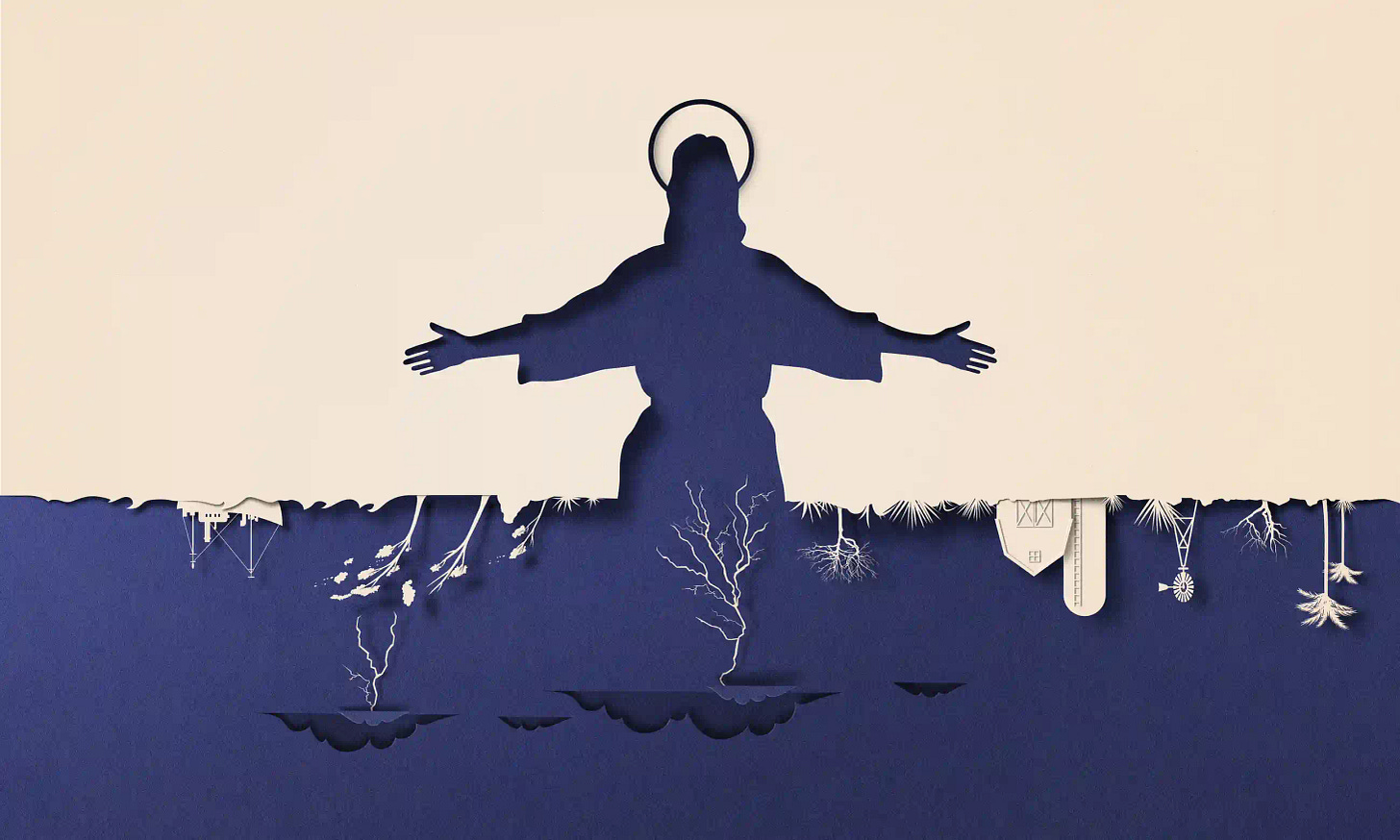Hey there!
About a week ago, I wouldn't have believed it if you told me a prominent opponent of climate action are conservative Christians. But as Dr. Katharine Hayhoe of Texas Tech University writes in her New York Times op-ed: "divisions within the science-faith arena, originally focused on questions of human origins and the age of the universe, are expanding to include climate change."
I must admit my surprise — even climate change? Although I've long had an inkling to the various rifts in modern Christianity, the implications of climate change seemed far from debatable. The way I saw it, millions of people's lives have been affected by the changing climate. That much is clear. Visible evidence and climbing numbers demonstrate the climate crisis is neither a distant nor imaginary threat. It is a growing, undeniable reality.
After my surprise came disappointment. It is deeply unfortunate that resistance towards climate action should stem from Christians. It's no small number, either. This resistance comes from the same demographic that gave Donald Trump the reigns of America, which in turn gave him a voice in global politics. Think about this for a moment. The same conservatives who accuse the climate change movement of being political and ideological in nature, are directly responsible for empowering Trump. And what did Trump do? He withdrew from the Paris Climate agreement.
How did this come to pass? When did key, central components of the Christian doctrine, like environmental stewardship, become associated with liberal politics?
The internet is home to many opinions, so I began to read what I could find. After all, my hope for Our Green Offering is to explore value systems that will guide us towards a Green future. And in order to do that, it's helpful to understand the forces working against us.
One article that helped shed some light on this issue came from the Guardian's Megan Bergman, where she shares her experience engaging with American Southerners on the topic of climate change. I thought that this was a pretty good example of taking the time to engage in constructive dialogue, best summarized by the following line: "if we're going to address climate change in time to prevent catastrophic results, we're going to do it by taking cooperative action with those whom we disagree."
But what do we disagree on? That's what I wanted to know, and it can be summarized with the following quotes:
"Environmental stewardship is often associated with liberal politics, thus looked upon negatively".
“Environmentalists have been lumped up with hippies and liberals and all the other people who were probably going to hell”.
“There is a longstanding antipathy toward environmental sentiments in Christian, and especially evangelical circles, because they have, for centuries, been imagined as pernicious and dangerous, and possibly bordering on paganism.”
Mary Beene, a pastor in Savannah, notes that “in our congregation, it [climate change] was a more controversial topic than race or sexuality”.
But that's not all. This article from the Washington post summarizes why Christian conservatives don't worry about climate change in their title.
God, they believe, will help them overcome the insurmountable challenges that will come with climate change. Their argument is that if there’s nothing we can do about it, we have to leave it to a God that can.
Of course, one must wonder if this is rational theology or misplaced spirituality that's grounded in fear. As the article’s author Lisa Vox puts it, “... conservative evangelicals, who had been somewhat accepting of environmentalism in the 1970s, became convinced that the Antichrist would use the fear of climate change to seize power.”
It becomes clear that both camps are fighting their own battles.
The question then becomes, which one takes priority?
Remedy, remedy, remedy.
I believe the future will lend itself to a less rigid sense of identity, when cooperation is valued and ecumenical attitudes prized. That is the hope for progressivism — and the good news is we've already begun to see such efforts. Take this republican's evolution from being a climate change denier, to his present belief in climate change.
Or Republicen, an eco-right platform that hopes to bridge the political divide. Both of these examples live up to the ethos Bergman summarizes so succinctly: "If you want someone to have a conversion moment, it helps for them to hear it in their own language, from someone they trust.”
So what's the remedy? As Dr. Hayhoe’s sums up:
“Connecting our identity to action is key, and that’s exactly why I don’t typically begin with science when starting conversations about climate change with those who disagree. Rather, I begin by talking about what we share most. For some, this could be the well-being of our community; for others, our children; and for fellow Christians, it’s often our faith.”
Like Dr. Hayhoe, I will offer the following for what I believe in Christian stewardship for our changing climate. It can be summed up as such:
Loving God, means caring for his creation.
I've had the privilege of seeing first hand how the changing climate has affected communities in the Philippines, Mexico, Ethiopia, and Northern Indonesia. And because I've seen how our changing climate disproportionately affects the poor and vulnerable, I believe that the onus falls on gospel loving Christians who want to fulfill the commission laid out for us in Genesis 2:15. Of caring for this world by developing social policies and initiatives — among other things — to help the most poor and the vulnerable.
That, to me, is good stewardship of the Master’s estate.
What do you think?
If you're a Christian who believes in climate change, what else can we add to this list? If you're a non-Christian, what are some things we share in common?
Thanks so much for reading through this issue.
I'll see you in the next one!
With warm regards,
Daniel




